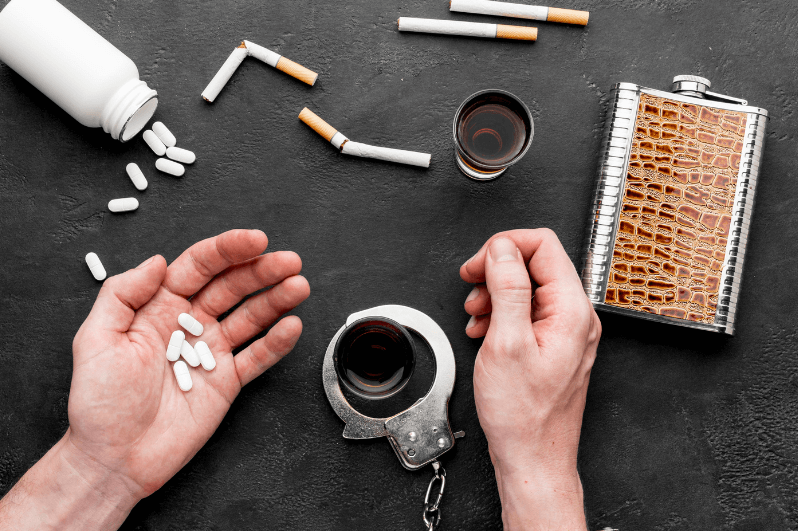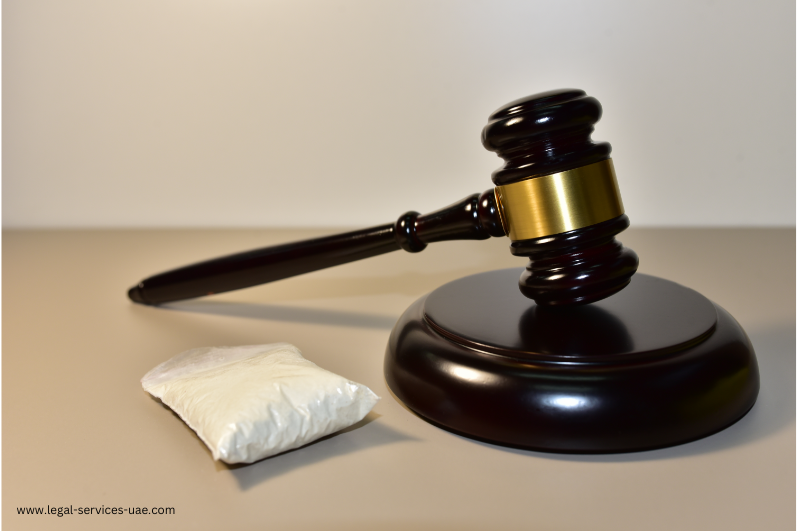UAE Drug Law Changed and Deportation No Longer a Must To learn more about the details, continue reading this article, written by the best lawyers in UAE
فهرس المقال
UAE Drug Law Changed
Turning to the provisions of the UAE Anti-Drug Law, issued by Federal Decree-Law No. 30 of 2021, it is evident that mitigating drug penalties in the UAE concerns two categories: the category of users who have reached the stage of addiction, and the second category involves those who cooperate with the competent authorities to eliminate the scourge of drugs, enabling them to arrest the criminal networks promoting such substances.
Article 69 of the UAE Anti-Drug Law stipulates the exemption of the offender from the prescribed penalties if they proactively inform the judicial and administrative authorities about what they know of the crime before it is committed.
Furthermore, this article permits the court to exempt from punishment if the notification occurs after the crime has been committed and before the investigation begins. It also allows for the reduction of the penalty if an offender facilitates for the competent authorities during the investigation and trial, the process of arresting multiple perpetrators of the crime.
Article 89 of the UAE Anti-Drug Law states that no criminal lawsuit shall be filed against a drug user if they, their spouse, a relative up to the second degree, or their guardian, voluntarily present themselves to an addiction treatment unit, the Public Prosecution, or the police, before being apprehended for drug consumption, or before an arrest warrant is issued, so that they may be admitted for treatment at the specialized treatment unit.
It is noteworthy that the UAE Anti-Drug Law emphasizes the mitigation of penalties related to drug consumption to the extent that it has allocated a special chapter for it, Chapter Twelve, which includes the provisions related to the treatment of addiction and admission to the specialized treatment unit. Additionally, it considers the act of consumption as a crime that does not constitute a judicial precedent and does not require rehabilitation upon its first commission by citizens.
Rehabilitation and Treatment Programs Instead of Prison
The UAE Anti-Drug Law signifies a preference for therapeutic measures over punitive ones for addicts. It mandates the UAE Ministry of Health to establish specialized units for the treatment and rehabilitation of drug addicts. The Cabinet issues regulations governing these units, and local health authorities are also required to establish similar units.
Article 6 of the UAE Anti-Drug Law emphasizes that all data and information related to addicts and users held by these units are considered confidential and must not be disclosed or disseminated.
A positive step taken by the UAE Anti-Drug Law is the creation of specialized centers to implement imprisonment penalties for drug use and personal consumption crimes. Simultaneously, sentenced individuals undergo treatment, rehabilitation, and vocational and sports training programs.
Article 92 of the UAE Anti-Drug Law grants the Attorney General the authority to refer drug crime offenders to the treatment unit. No criminal lawsuit is filed against those who successfully complete the treatment program, provided the rehabilitation period does not exceed one year.
Thus, the United Arab Emirates differentiates between drug-related offenses, imposing the harshest penalties, including life imprisonment or death, for smuggling, promoting, and trafficking crimes.
In contrast, for consumption crimes and dealing with addicts, the approach signifies the consideration of addiction as a disease rather than a crime, establishing necessary rehabilitation programs to reintegrate users into society.
Therefore, the UAE Anti-Drug Law serves a dual purpose: protecting the Emirati society from the dangers of drug trafficking and promotion, and rehabilitating, treating, and reintegrating addicts and users, rather than leaving them to struggle with addiction under the influence of dealers and promoters.
This approach aligns with the global shift towards viewing addiction as a disease, not a crime, with many countries opting to treat and support addicted users instead of punishing them, thus preventing their continuous suffering.
Frequently Asked Questions (FAQ)
What are the conditions for Mitigating Drug punishment?
For serious crimes such as trafficking, promoting, and smuggling, the conditions for mitigating drug penalties include the offender informing the competent authorities before committing the crime or after its commission, or assisting the authorities during the investigation in arresting other perpetrators, especially in cases involving multiple offenders.
Is addiction a disease or a crime?
Most countries, including the United Arab Emirates, have shifted towards viewing addiction as a disease, not a crime. Consequently, they have adopted a treatment and rehabilitation approach to reintegrate addicts into society, instead of a punitive approach.
In conclusion of our article on mitigating drug penalties in the UAE, we hope to have successfully explained how such penalties can be mitigated. We advise anyone involved in drug-related crimes, especially personal use or consumption, to seek legal counsel. For this purpose, you are welcome to contact us or request a consultation.
Was this helpful?
Specialized Legal Content Writer, possessing deep legal knowledge and exceptional ability to demystify legislation and analyze judicial developments. He delivers clear, precise content that helps you understand your legal rights and obligations while empowering you to make informed decisions across diverse legal domains. Working within our expert legal team, he ensures credibility and trustworthiness in every piece of content.

